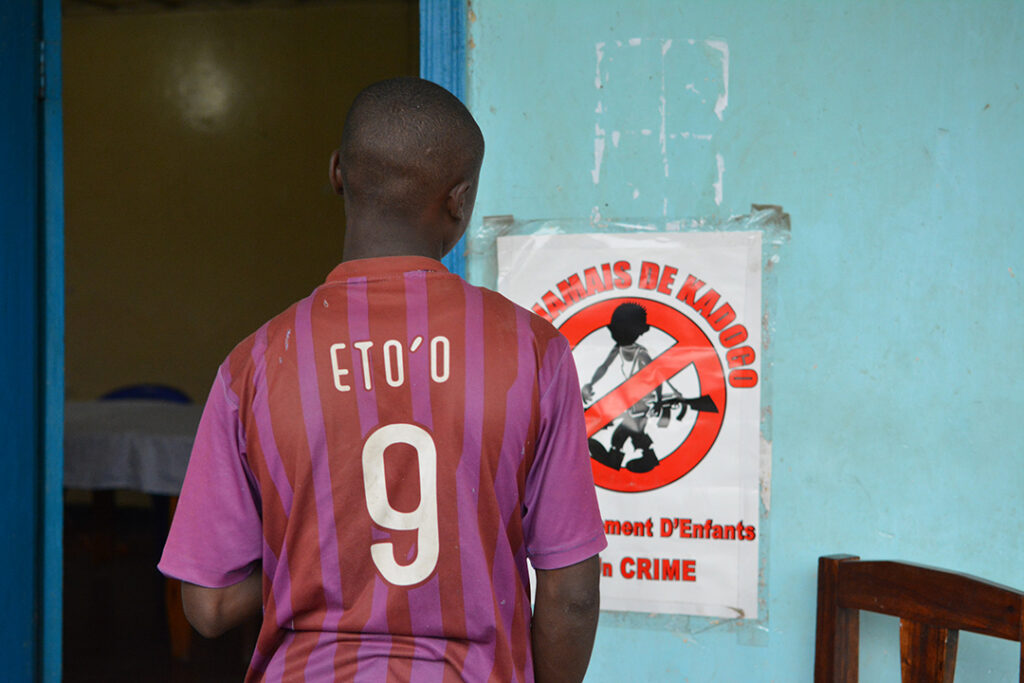ADF STAFF
Constance was 13 years old when she left her home in North Kivu province in the east of the Democratic Republic of the Congo to join a militia called the Alliance of Patriots for a Free and Sovereign Congo.
Child soldiers are known as kadogos, which means “little ones” in Swahili. Despite her small stature, she carried rocket-propelled grenades and supported fighters on the battlefront against M23 rebels.
“I went to war,” she told The Guardian from a displacement camp near the provincial capital, Goma. “It was a nightmare.”
Experts say the recruitment of children has surged since the Rwanda-backed M23 rebellion resurfaced in 2022. In the case of Constance, who requested the use of a pseudonym, poverty drove her to this path. But countless other children have been abducted by or coerced into the militias on both sides of the fighting.
“The militias, collectively known as Wazalendo (‘patriots’ in Swahili), are being used because of poor motivation and dysfunction within the ranks of DRC’s army, which has seen dozens of Soldiers and officers prosecuted for deserting the battlefield,” South Africa-based journalist Patricia Huon wrote in The New Humanitarian magazine in August. “Yet the Wazalendo groups, some of which have previously fought each other, are committing serious human rights abuses and bringing large numbers of child soldiers to the frontlines, thwarting long-running efforts to prevent their recruitment.”
Marie Soudnie Rivette, DRC director of the international charity War Child, said it is impossible to estimate how many children are caught up in the fighting, but she believes the actual number is much higher than is reported. “It’s clearly rising,” she told The Guardian for a November 11 article. “Children are cannon fodder today.”
Most of the 14 children The Guardian interviewed in a displacement camp in Goma had recently escaped armed groups. Most said the only way to leave is to desert, and some said they were shot at as they fled.
Onesphore Sematumba, an analyst in the DRC with the Crisis Group, said militias that forcibly enlist minors into their ranks often have hazy ideas about what a child is.
“They determine it by size or the ability to carry heavy weights,” he told The Guardian.
A United Nations panel of experts detailed the extent of child recruitment in a July report, stating that “all armed actors recruited and used children in hostilities on an unprecedented scale.” The experts wrote that the M23 “systematically” abducted children as young as 10 “in rural areas while working in the fields, individually or in large groups, as confirmed by several ex-M23 combatants who were recruited in such circumstances.” M23 also targeted children among other Congolese for recruitment from refugee camps in Rwanda and Uganda. At one M23 training camp, at least 20% of the estimated 1,000 recruits were children.
“Those who did not consent were taken forcefully,” the report stated. “Recruits who attempted to escape faced execution.”
Recruits who were 15 and above were trained for combat, including at some sites in Rwanda, before being deployed to the front lines to fight. They also were subjected to heavy labor, including digging tunnels and trenches.
“The youngest children, usually under 15 years old, did not receive full tactical training but carried out chores and acted as escorts or servants to commanders until they became ‘ripe’ for combat duty,” the report said.
A number of sources told the U.N. experts that nearly all of the Wazalendo militias utilize children, and the sight of armed children has been widely reported around Goma, at or near military positions and camps for internally displaced people.
“One of the biggest concerns around the Wazalendo is their massive use of child soldiers, which has set back efforts to prevent their recruitment by many years,” Huon wrote.

